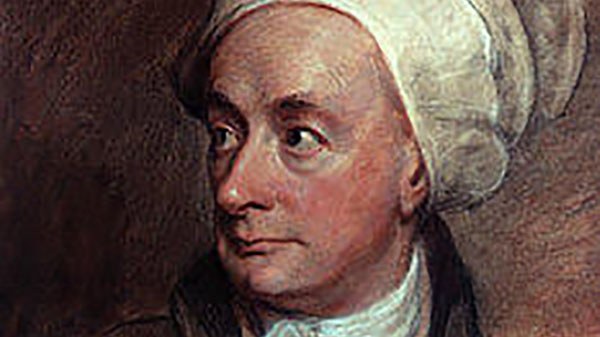Liturgy: “In Cowper’s Weakness”
In the aftermath of the sorrow and mourning of this week, we are reminded that God loves us, and, in spite of doubts and sufferings, creates beautiful things through us and despite us.

What is the King’s Liturgy? King’s Liturgy defines our experience together as a Christian community. It outlines the rhythms we celebrate with the Church at large: Scripture readings, Sabbath habits, and celebration of Holy Days and historical events.
This Week’s Lectionary Readings
Isaiah 40:21-31
1 Corinthians 9:16-23
Mark 1:29-39
Psalm 147:1-12, 21c
This week’s liturgy is contributed by Dr. Gregory Thornbury, chancellor:
In the aftermath of the sorrow and mourning of this week, we are reminded that God loves us, and, in spite of doubts and sufferings, creates beautiful things through us and despite us. On Thursday in our community gathering, as we grieved the loss of our sister, Leah Arrasmith, I recounted the story of a too often forgotten poet who can give us hope in a moment such as this.
With pet rabbits at his feet and a quill pen in hand, William Cowper retreated into a tiny shed near his house which he had dubbed his “Sulking Room.” Here, he would write with his neighbor, the former slave trader-turned-pastor and tireless advocate for the abolition of the slave trade, John Newton. It was the spring of 1772 in the tiny, lace-manufacturing town of Olney. Cowper and Newton were deep in collaboration over a series of hymns to accompany Newton’s expositions of the Bible. The Olney Hymns, as they came to be called, were composed between 1772 and 1773 and published six years later. Cowper wrote close to 70 of them. Altogether, this hymn collection numbered 348 and included such classics as “Amazing Grace” and “God Moves in a Mysterious Way.”
Cowper was born in 1731, the fourth child of Pastor John and Ann Donne Cowper. When William was only six, Ann died during the birth of his younger brother, John. This tragedy, combined with the early deaths of his older siblings and with bouts of severe bullying during his early school years, made Cowper a very sensitive person. Indeed, he allowed these trials to overshadow much of his life, rendering him melancholic and susceptible to suicidal tendencies. Despite his situation, God used his anxiety and depression to articulate powerful theological insights.
Cowper’s skill with words became evident early on, and he studied to be a lawyer. But when the time came for him to take the bar exam, the stress of the test sent Cowper into a tailspin of depression. He attempted suicide three times and was sent to an asylum to recover. Dr. Cotton, the resident psychiatrist who treated Cowper, was a devout Christian, and he pointed Cowper to have faith in Jesus.
Besides battling depression, Cowper lacked financial insight and relied on his platonic companion, Mary Unwin, and several others for daily logistics and care. Though he was charming and courted several women, he never married. He feared change and grew inconsolable whenever major adjustments occurred. Oddly, he took them as signs that God had forsaken or condemned him.
In spite of all Cowper’s deep sadness and personal darkness, his gifts inspired others. His hymnody, which brimmed with the consolations of the love of Christ, was favored by theologians and secular intellectuals alike, providing inspiration not only for John Newton, but also for the Romantic writer William Wordsworth. Cowper’s translation of Homer rivaled that of Alexander Pope, and Cowper is considered one of the greatest letter-writers in the history of the English language. The general public also adored his writing: Children read his poems at school, friends relished his correspondences, and men and women hummed his music in kitchens and fields across the country. Indeed, in Cowper’s weakness, the witness of Christ was made strong—an encouraging example to those who struggle today with their own spiritual and emotional fragility.




